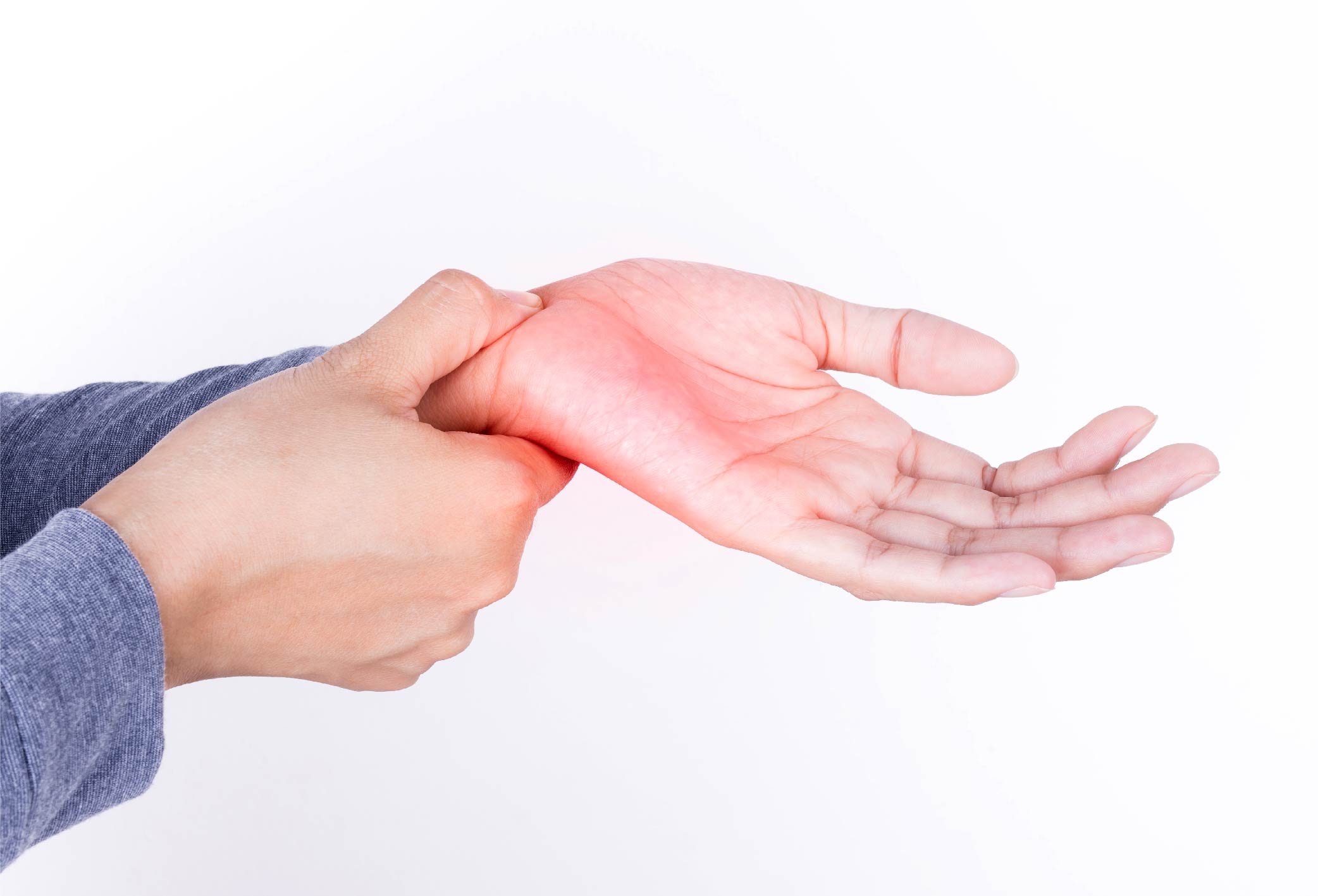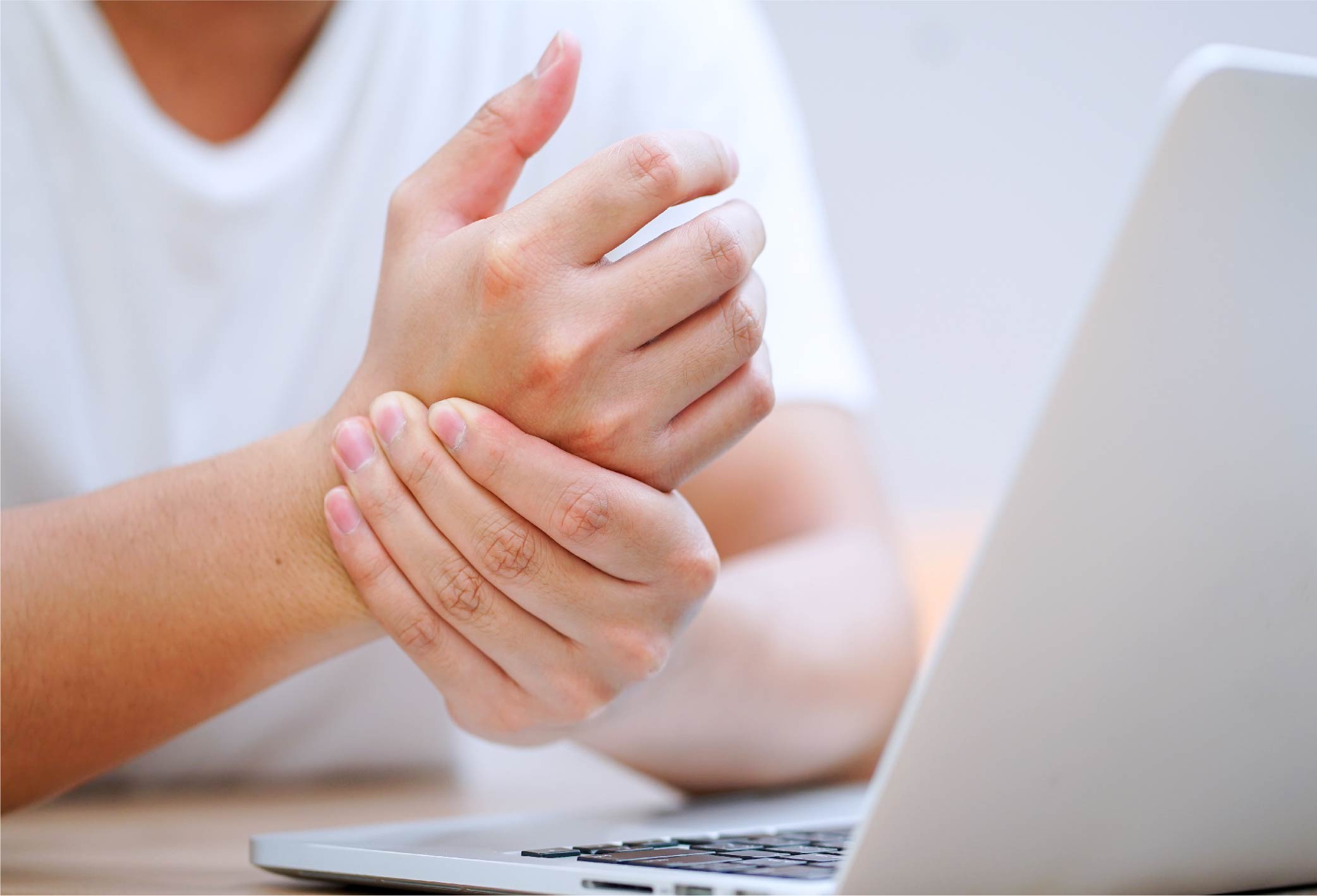Carpal Tunnel Syndrome

Dont Ignore Hand Pain or Numbness It Could Be Nerve Compression
Carpal Tunnel Syndrome: More Than Just a Numb Hand
Numbness or tingling in the hand may be a sign of Carpal Tunnel Syndrome, a condition caused by inflammation and thickening of the surrounding tissue in the wrist, which narrows the space within the carpal tunnel. This compresses the median nerve, leading to:
Pain or electric shock-like sensations
Tingling or numbness in the wrist, palm, thumb, index, and middle fingers
In more severe cases, weakness in the hand making it difficult to grip objects

Causes and Risk Factors
One of the main causes of Carpal Tunnel Syndrome is repetitive wrist or hand movement, such as:
- Clenching the fist tightly
- Frequent wrist flexion or extension
- Prolonged use of the hands or wrists in fixed positions
Commonly Affected Groups:
- Office workers and computer users
- Drivers
- Homemakers and gardeners
- Painters
- Athletes, including badminton, tennis, and golf players

The Right Approach at Kayakata Clinic
At Kayakata, treatment combines physiotherapy with regenerative and cellular-level care for long-term recovery.
Physiotherapy Treatments:
- Shock Wave Therapy: Stimulates tissue repair and reduces pain
- Peripheral Magnetic Stimulation (PMS): Improves numbness and enhances muscle strength
- High Power Laser Therapy: Penetrates deep into affected areas to stimulate nerve repair and accelerate healing

Integrative Therapy for Deeper Healing
Our regenerative treatment focuses on restoring cellular function, including:
- Prolotherapy: Uses mild irritation to trigger the bodys healing response
- Platelet-Rich Plasma (PRP): Injects concentrated platelets from the patients own blood to promote natural tissue repair
- Nucleic Acid Therapy (Bioactive Peptides): Replaces degraded peptides to restore cell function
- Cell-based Regenerative Therapy: Injects specific cell components to repair degenerated cells and stimulate new cell growth
We also offer personalized nutritional counseling and vitamin supplementation as part of an integrated care plan.

Can You Manage It Yourself?
In the early stages, mild symptoms can often be managed with self-care, such as:
- Resting the wrist and reducing repetitive motions
- Stretching and strengthening exercises for tendons, muscles, and nerves
- Wearing a wrist brace or splint
However, if symptoms persist, its important to see a doctor for a proper diagnosis and treatment plan.
Recommended Exercises to Improve Flexibility and Prevent Nerve Compression
These hand and wrist exercises are helpful both for those experiencing numbness from carpal tunnel syndrome and those who use their hands and wrists extensively.
️Keep your wrist upright throughout all exercises. Repeat each movement 10 times per hand, holding each position for 5 seconds:
- Make a fist and hold
- Spread all five fingers together and hold
- Extend the wrist backward with thumb aligned with the other fingers and hold
- Spread fingers and extend wrist backward (thumb does not need to touch index finger)
- Extend wrist and fully supinate the palm
- Same as step 5, but use the other hand to gently stretch the thumb outward
These movements help improve tendon glide, muscle flexibility, and nerve mobility.

Lifestyle Matters: Dont Stay in One Position Too Long
Prolonged use of hands and wristsespecially without breaksis a major cause of Carpal Tunnel Syndrome in todays lifestyle. To reduce your risk:
- Change posture regularly
- Take a short break every 3040 minutes
- Allow your muscles and nerves time to relax and recover
By paying attention to early symptoms and taking proactive steps, you can protect your hand and wrist healthand improve your overall well-being.


